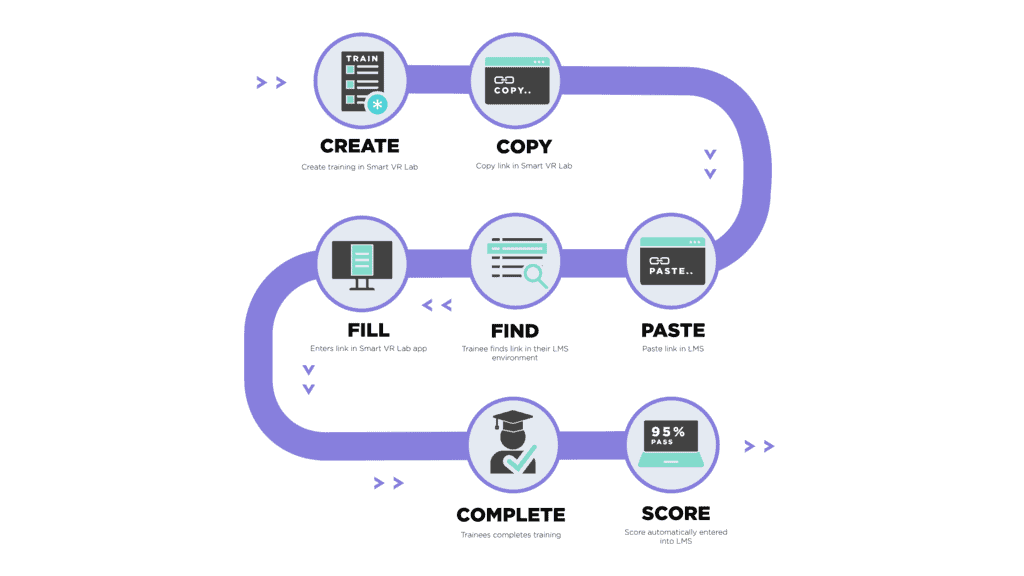Businesses these days are using more software systems than ever before. At an average of 129 different software systems, nearly 10% of businesses now have more than 200 apps. The best way to get the most out of these software is when they are integrated together and sync in harmony. One of the perfect examples of this is LMS integration with Virtual Reality.
What is an LMS?
LMS stands for Learning Management System. It is a software application used for administering, documenting, tracking, reporting, automating and delivering of educational courses, training programs or learning and development programs. Some popular LMS systems include Capp LMS, SAP Successfactors, Workday, Cornerstone, Saba and Moodle.
Integrating apps into your LMS
Almost all LMS systems support the LTI standard. This stands for Learning Tools Interoperability and allows standardized communication between an LMS and another application.
The LTI standard prescribes a way to easily and securely connect learning applications and tools with platforms like learning management systems (LMS), portals and learning object repositories on your premise or in the cloud, in a secure and standard manner and without the need for expensive custom programming.
If you choose a VR learning tool provider that supports an LTI connection, you can easily integrate it into your existing LMS.
Why integrate VR with your LMS?
If your business is not using a VR-ready LMS system, then you are most probably trailing behind, or VR is just not that relevant to your company. If you want to know for sure, here you find a useful model that helps determine whether VR is useful for your business
But if you use VR, integrating it with your LMS can be beneficial for the following reasons:
- Privacy: Built with privacy in mind, the VR platform does not keep data of all users when integrating with your LMS. This is useful when you lose your device or gets stolen, you don’t have to worry about your data. Thanks to LTI Connection, no passwords or usernames are stored on the device.
- Learning Flow: Easily add VR into your existing learning path by adding a link in the LMS on the place you usually shared it. For your employees nothing changes in the way they were used to learn, just the medium is different.
How does Smart VR Lab’s LMS integration work?

Conclusion
Having your LMS integrated with Virtual Reality gives your Business a strategic advantage in the industry. Thanks to Smart VR Lab, your business can adapt to this new trend and leverage the full power of e-learning.
To transform your business, simply contact Smart VR Lab for a demo and set up a meeting with our team.
If you have questions on anything related to VR, you can always send us a mail to info@smartvrlab.nl
